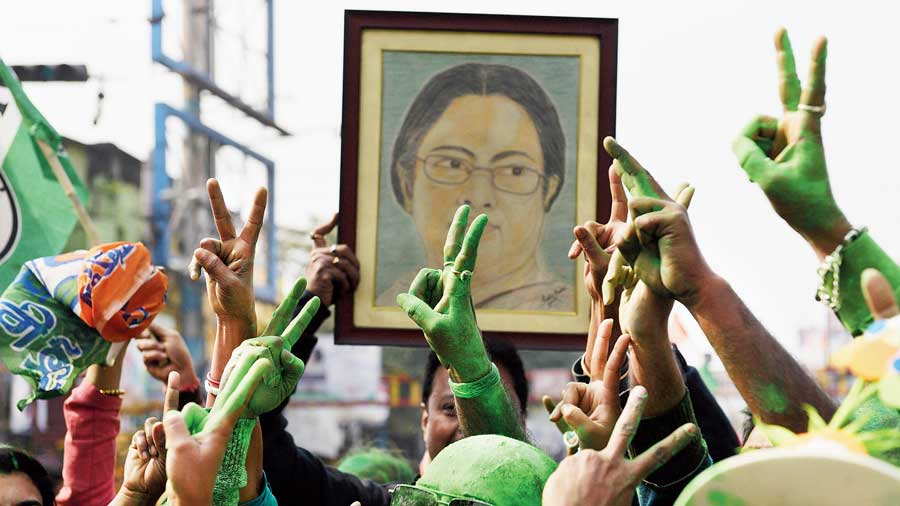he outcome of Calcutta’s municipal election was a foregone conclusion: the Trinamul Congress was expected to do well. What has come as a surprise is the scale of the TMC’s triumph. Bengal’s ruling party bagged 134 out of 144 wards, cornered 93 per cent of the seats, and pocketed 72.12 per cent of the total votes. Contrastingly, the Bharatiya Janata Party, the TMC’s principal challenger, cut a sorry figure for itself. It won a measly three wards; its vote share fell to 9.21 per cent from 29 per cent in the last assembly election, falling behind even that of the Left Front. That the party has continued to lose both momentum and political turf is undeniable. In spite of a slight improvement in its vote share, the electoral harvest of the Left has been bitter. The Congress’s tally, too, is inconsequential. Mamata Banerjee’s claim of the TMC’s political dominance having a resonance in national politics may be ambitious. But there is no denying the fact that her party’s welfare initiatives, especially those for the needy, seemed to have elicited an energetic public response. The rise in the Left’s vote share can also be attributed to the relief work that its cadre undertook during the pandemic-induced lockdown.
Its performance notwithstanding, the TMC has its work cut out. Calcutta, much like any other congested, populous metropolis with creaking infrastructure, faces several civic challenges, principal amongst which is water-logging. Pot-holed roads — the monsoons turn them into waterways — poisoned air, especially during winter, the shrinking of green spaces and the absence of green public transport, primitive sewage facilities along with minimal amenities for the differently-abled as well as the marginalization — social and economic — of the LGBTQ community — Calcutta’s ordeals in terms of access to modernized amenities and its ability to honour community rights are steep. Moreover, climate change is likely to further aggravate many of these problems. Calcutta’s minders must work on the creation of a civic template that not only provides state-of-the-art facilities equitably but is also ready to meet the obstacles that are expected to arise in the future. What remains to be seen is whether the TMC’s monopoly on the levers of municipal power translates into a boon or a bane for the quality of civic life in Bengal’s capital city.











